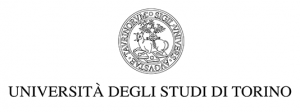Healthy eating in childhood tracks into adulthood, so promoting dietary variety should begin early. Children’s food preferences depend on food familiarity and liking, and research shows that visually familiarizing children with foods before they taste them (e.g. by looking at picture books) increases their willingness to taste, liking and intake of targeted foods. Year 1 activity will provide downloadable resources to support parents in familiarizing preschoolers with vegetables (e.g. interactive e-books, parent guidance) via the Food Unfolded portal. In Year 2, we will widen the dissemination of these resources by:
- translating ‘See & Eat’ e-books into further languages & involving new partners in disseminating guidance in additional countries;
- creating new versions of the supporting app to broaden access to families in additional countries ;
- involving education and health professionals in public engagement activities such as workshops and training sessions on how to use See & Eat resources; and
- exploring opportunities to disseminate books or other products through food retailers, such as alongside point of sale of healthy foods.
Project Leadership: Professor Carmel Houston-Price, University of Reading
Contact details: c.houston-price@reading.ac.uk
Participating organisations:







